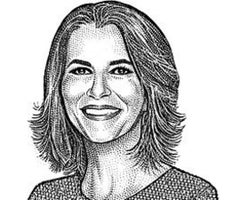MI SELECCIÓN DE NOTICIAS
Noticias personalizadas, de acuerdo a sus temas de interés

Nicolás Maduro’s decision to block humanitarian aid to the starving Venezuelan people is no surprise. It’s already well-established that the dictator and his Cubans backers are tyrants.
What really matters politically is the effect of new U.S. Treasury rules mandating that payments for Venezuelan oil go to an escrow account for the government of interim President Juan Guaidó. As the Journal’s Kejal Vyas and Bradley Olsonreported Feb. 4, the restrictions “are making it difficult for the Maduro regime to secure payment for the oil.”
A severe cash-flow disruption increases the odds that Mr. Maduro will have to move out of the presidential palace. Even so, democracy advocates had best not get ahead of themselves. Many risks would remain even if Mr. Maduro retires.
From the earliest days of Hugo Chávez’s rule, oil money has been the key to power in Venezuela. Chávez tightened his grip at first not by executing opponents but by buying them off. This is why friends of the region’s hard left are wringing their hands and crying that the Treasury rules will hurt the Venezuelan people.
The Venezuelan people are already destitute, and anything that accelerates Mr. Maduro’s demise is good for them. But what happens next?
Many analysts are overlooking the problem of the army of political operatives who were part of the breakdown of the country over the past two decades and now oppose Mr. Maduro.
These include die-hard chavistas like Rafael Ramírez. From 2004 to 2014, Mr. Ramírez was president of PdVSA, Venezuela’s state-owned oil company, which is in ruins. Also in the opposition are career bandits of the political class, who have shared for years in the spoils of corruption no matter who was at the helm. The list includes but is not limited to some members of Venezuela’s infamous Democratic Action Party.
These characters have broken with Mr. Maduro but not with the socialism that made them rich. They seek impunity for their crimes and a place at the feeding trough in the next government. Their strategy is to demand “power sharing” and to threaten to split the opposition if they aren’t dealt in. These self-interested opportunists have support from ideologues in places like the Vatican, which has been an advocate of appeasing Mr. Maduro.
The horrendous toll on humanity from two decades of Venezuelan socialism can’t be overstated. Food and toilet-paper shortages and malnutrition are getting the most attention. But an article in the journal Travel Medicine and Infectious Disease described Venezuela as “an epicenter of the resurgence of multiple vaccine-preventable, vector-borne, and zoonotic diseases with numerous ongoing, co-occurring epidemics.”
Malaria is a particular problem, the authors write, in part because of a large migration to illegal mining areas, a deterioration in the medical infrastructure and “above all, lack of political will.”
This is the legacy not only of Hugo Chávez but also those who embraced socialism, whether because of ideology or greed. He used his early popularity to rewrite the constitution, get the Venezuelan congress to give him the power to rule by decree, confiscate large farms, and attack entrepreneurs from the bully pulpit. He also cracked down on the free press. A few years later, when he trampled the rights of workers at PdVSA and packed the supreme court, the public was uninformed and there was little criticism from abroad. He could do it, the argument went, because he was still winning elections-though electoral institutions were already corrupted.
By 2007 price and capital controls were destroying the country’s productive capacity and harming businesses that sold imports. It was already difficult to find routine foodstuffs like milk, cooking oil, bread and pork. But Chávez had control of PdVSA and was flush with cash. No one could stop him.
Oil money greased every sector of society-from the government, military, business and media to nongovernmental organizations including religious groups. Most important, Chávez used it to bribe and corrupt members of other political parties.
These sycophants, along with the anti-Maduro chavistas, are now worried. They have no ethics and they don’t want Mr. Guaidó to succeed if it means the end of the gravy train-and the power that comes with it. That’s why they want to brand the interim president as a radical right-winger who is pulling off a coup with Washington’s help.
Enemies of democracy, including Cuba and Iran, will try to hold on to their power in Venezuela even if it means a bloodbath. In preparing for this possibility, Mr. Guaidó doesn’t have to worry only about Mr. Maduro’s supporters but also about the weasels who want to seize control of the opposition movement.
Cargamento mexicano llega pocos días después de que el gobierno cubano anunció medidas de racionamiento cada vez más estrictas
Cifras de retorno de inversión de esta industria son de US$3.000 millones por cada 100 MW. Se espera su entrada en los próximos 2 años
Se espera que nuevos recortes en las tasas de interés por parte del banco central de México y una recuperación prevista de la actividad económica en comparación con 2025